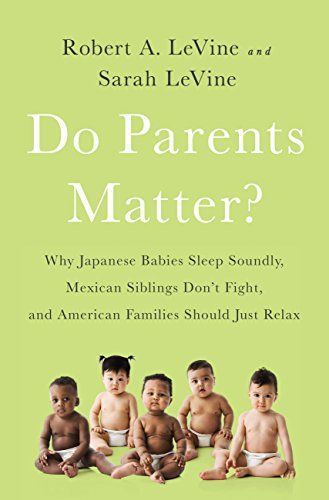
Do Parents Matter? Why Japanese Babies Sleep Soundly, Mexican Siblings Don't Fight, and American Families Should Just Relax
When it comes to parenting, more isn't always better-but it is always more tiring In Japan, a boy sleeps in his parents' bed until age ten, but still shows independence in all other areas of his life. In rural India, toilet training begins one month after infants are born and is accomplished with little fanfare. In Paris, parents limit the amount of agency they give their toddlers. In America, parents grant them ever more choices, independence, and attention. Given our approach to parenting, is it any surprise that American parents are too frequently exhausted? Over the course of nearly fifty years, Robert and Sarah LeVine have conducted a groundbreaking, worldwide study of how families work. They have consistently found that children can be happy and healthy in a wide variety of conditions, not just the effort-intensive, cautious environment so many American parents drive themselves crazy trying to create. While there is always another news article or scientific fad proclaiming the importance of some factor or other, it's easy to miss the bigger picture: that children are smarter, more resilient, and more independent than we give them credit for. Do Parents Matter? is an eye-opening look at the world of human nurture, one with profound lessons for the way we think about our families.